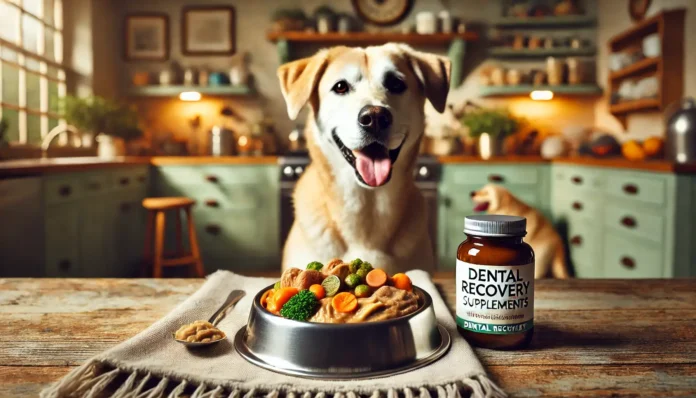What to Feed Dog After Dental Cleaning? Choosing the right foods is important during your furry friend’s recovery after a dental cleaning. As humans need to be taken care of gently post any dental treatment, dogs also need to be taken care of delicately and diet will play an important role in this process. The right nutrition will not only help soothe their sensitive gums but promote long-term oral health.
Curious about park health concerns? Get the facts on the Derry Dog Park Health Issue.
So in this guide, we take a look at all the best, soft and fresh post clean grub variety that’ll give your pup the TLC it needs. Whether you’re looking for advice on how to avoid irritation, tips for preventing boredom, ideas for maintaining a balanced diet or all of the above, you will find what you need to support your dog’s recovery and help keep their tail wagging.
Now let’s take a look at how to make mealtime effortless during this healing process!
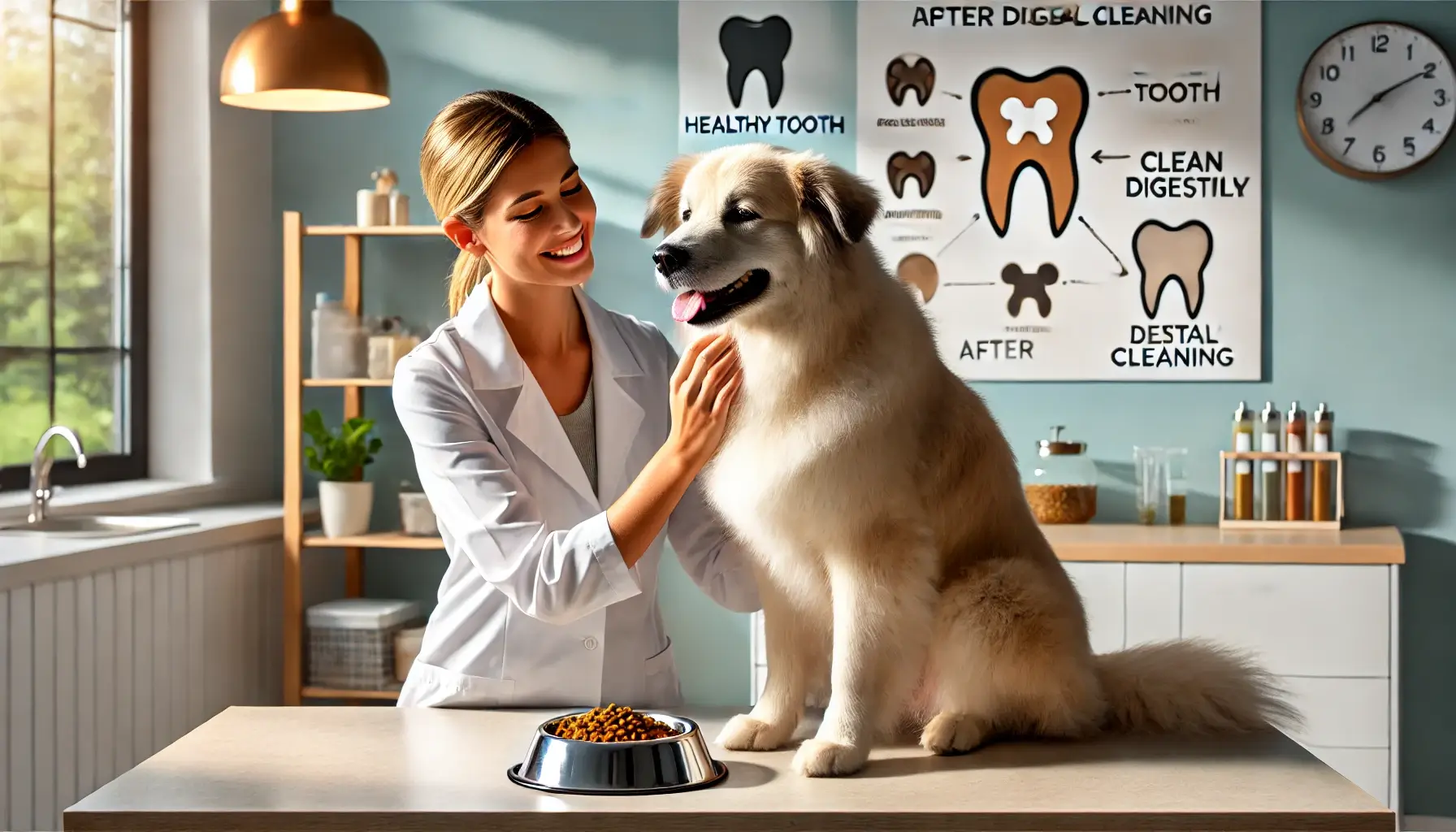
Why Proper Feeding Is Important After Dental Cleaning
Understanding how to properly feed your dog is crucial, especially when your pet has just come from younger dog dental cleaning. An appropriate diet after the procedure not only keeps your comfort level high but also supports the healing process.
Understanding why there is special care can give you the ability to make decisions to help your dog recover correctly.
Learn how long dental cleanings take to better prepare for recovery.
Supporting Healing
Understanding how to properly feed your dog is crucial, especially when your pet has just come from younger dog dental cleaning. An appropriate diet after the procedure not only keeps your comfort level high but also supports the healing process. Understanding why there is special care can give you the ability to make decisions to help your dog recover correctly.
Preventing Discomfort
Hard or crunchy food can further irritate your dog’s pain and lengthen your dog’s recovery period. Steering clear of such fare reduces the risk of having pain or complications, such as inflammation or bleeding of the gums. Providing softer alternatives will aid in avoiding any unintentional pressure to their teeth or gums, making for a pleasant transition into the recovery phase.
Not only are you going to make your dog more comfortable when you carefully manage their diet after a dental cleaning, but you’re proactively supporting their overall oral health and well-being.
Understand the benefits of dental cleanings for your dog’s health.
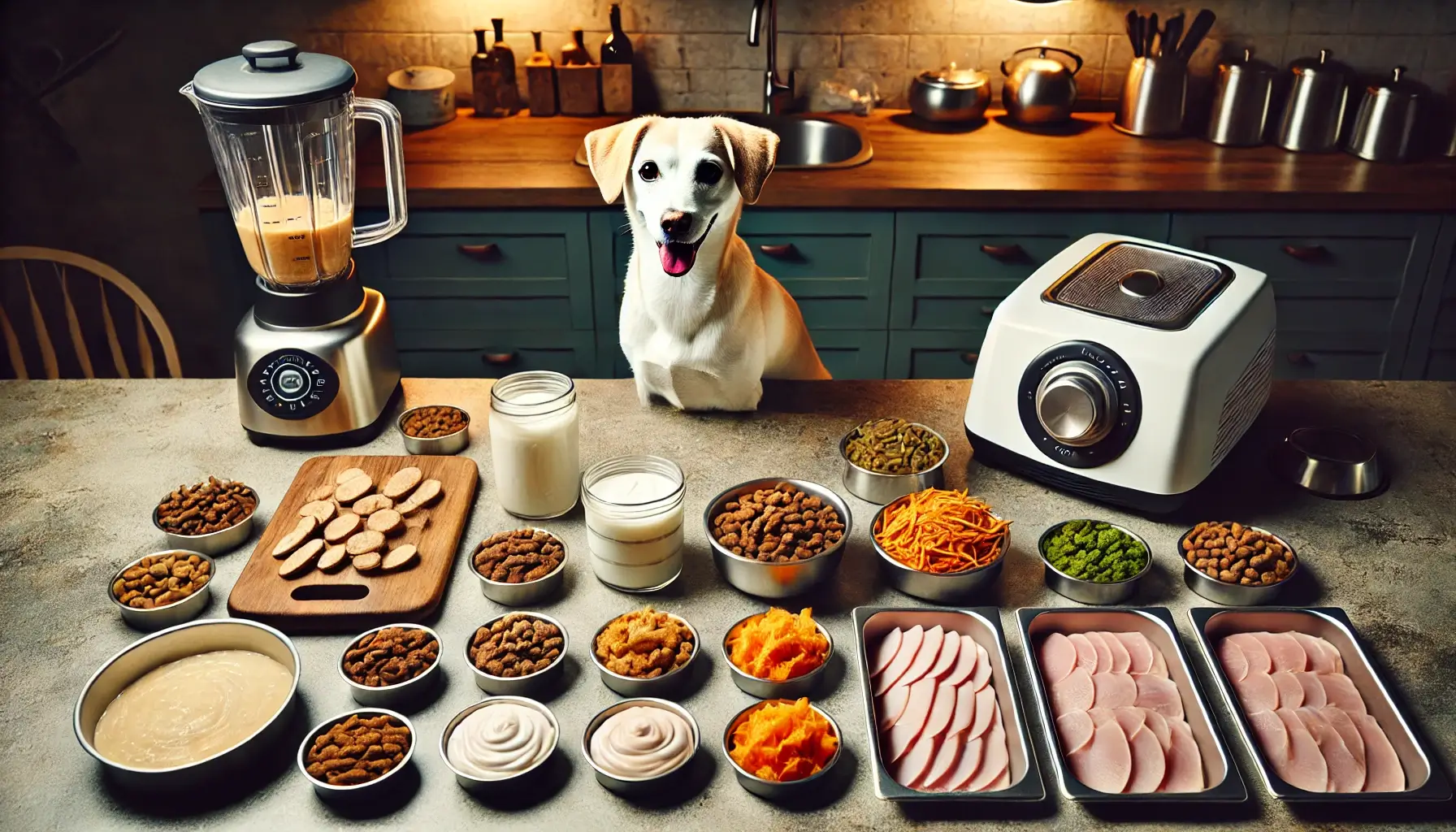
Best Foods to Feed Your Dog After Dental Cleaning
Post-dental cleaning, selecting the right foods ensures your dog heals comfortably and stays nourished. Soft, bland, easy-to-digest choices are the best way to avoid irritation and to ensure providing the energy your body needs to recover. Here, we’ve rounded up the top foods to eat during this sensitive time.
What you need to know about post-cleaning care.
Soft, Bland Foods
Soft, bland foods are easy on your dog’s gums and teeth and provide vital nutrients. These are all packets that are easy to make and digest:
- Soft, cooked, shredded chicken or turkey: A good source of nutrition and light on sensitive gums.
- Mashed sweet potatoes or regular potatoes: These provide energy-rich carbohydrates without causing irritation.
- Plain, cooked white rice or oatmeal: These gentle grains are perfect for maintaining your dog’s digestive balance while being easy to eat.
Wet or Canned Dog Food
Canned dog food, especially those designed for post-surgery care, can be an excellent option for your pup.
- Vet-recommended canned options: These are formulated to meet your dog’s nutritional needs while being soft and easy to chew.
- Benefits of soft textures: Wet food eliminates the need for vigorous chewing, reducing the risk of gum discomfort or injury.
Homemade Meals
However, if you prefer a personalized approach, homemade meals can provide diversity and freshness.
- Boiled fish, mashed carrots, or scrambled eggs: These are soft, nutrient-rich options that are easy to prepare.
- Low-sodium chicken or bone broth: Not only does this provide hydration, but it also adds flavor to encourage your dog to eat.
By offering these light and healthy foods, your dog will be able to recover more quickly and will make mealtime a delightful, low-stress experience. Always reach out to your vet for dietary advice specific to your pup’s needs!
Follow these guidelines to maintain dental health in dogs.
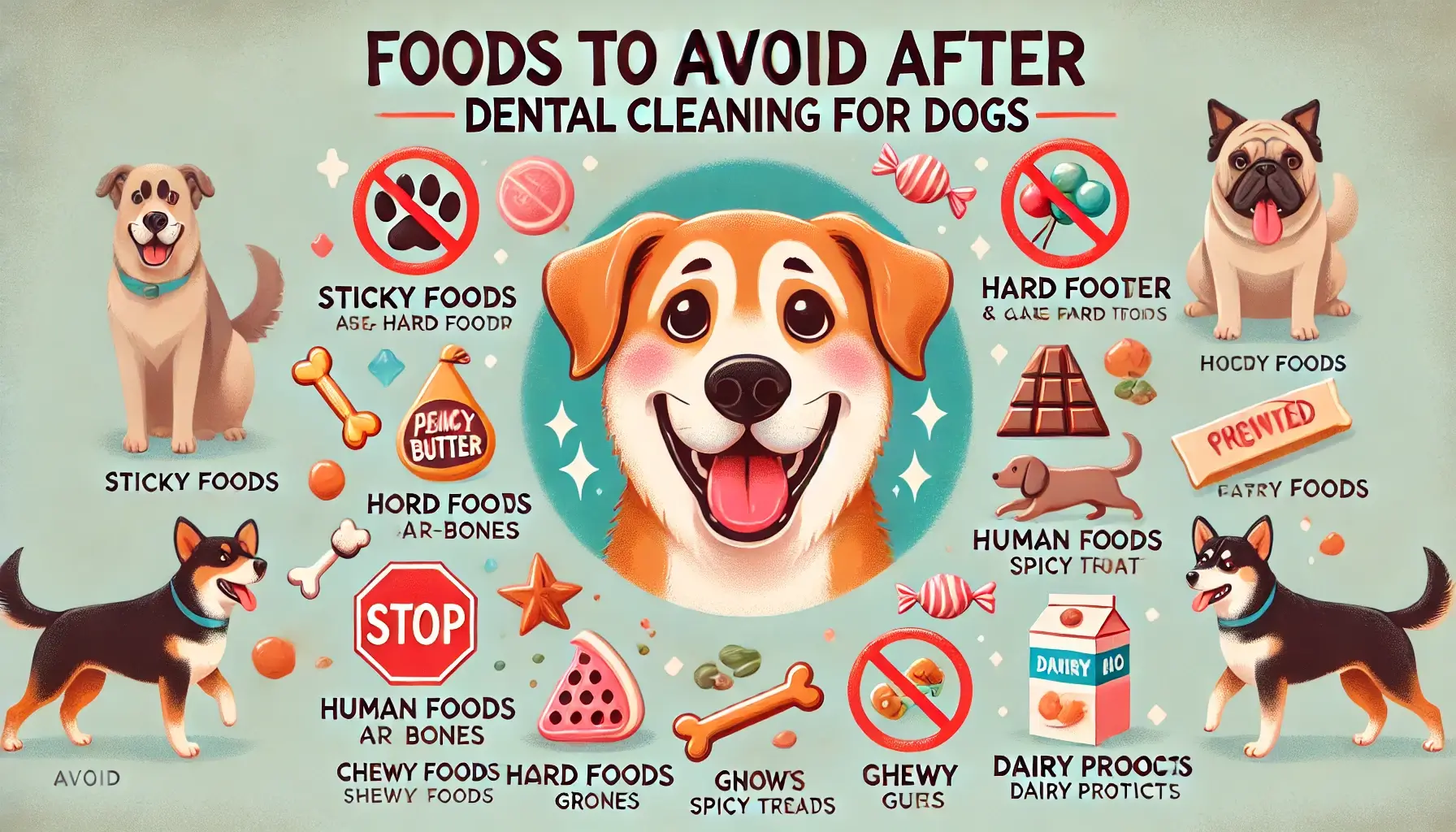
Foods to Avoid After Dental Cleaning
Soft and gentle foods are a must-have for your dog’s recovery after a dental cleaning, but knowing which foods to avoid is just as important. Some things can aggravate sensitive gums, cause pain or even delay the healing process. Avoiding these foods makes for a smoother recovery and minimizes complications.
Explore common health issues to avoid complications during recovery.
Hard or Crunchy Foods
Be sure to avoid any type of food that needs a lot of chewing or has rough textures, as they can irritate your dog’s gums after a dental procedure.
-
Dry kibble, hard treats or bones: These can place unwanted pressure on sensitive areas, resulting in pain or, worse, damage to the healing tissues.
-
Chew toys or dental sticks: While these are good for dental health in the long run, they should be avoided until your dog’s gums are completely healed as they can cause irritation or bleeding.
How Often Do Dogs Need Dental Cleaning? Explore our complete guide for expert tips and a dental care schedule for your pup!
Foods That Can Cause Irritation
Some foods and ingredients are not appropriate for your dog’s healing mouth or your dog’s health.
-
Spicy, salty or highly seasoned foods: They can irritate the gum tissues and upset your dog’s stomach. Stick to bland, unseasoned foods for your comfort.
-
Human foods with toxic ingredients: Foods such as onions, garlic or even things seasoned with harmful spices are dangerous and should definitely be avoided.
As you do this, you’re establishing a safe and soothing environment for your dog to heal by steering clear of these foods. Always reach out to your vet if you’re uncertain about what’s appropriate during this recovery period, and keep in mind that a touch more TLC can do wonders in keeping your dog happy!
Discover wellness tips for your dog’s overall health.
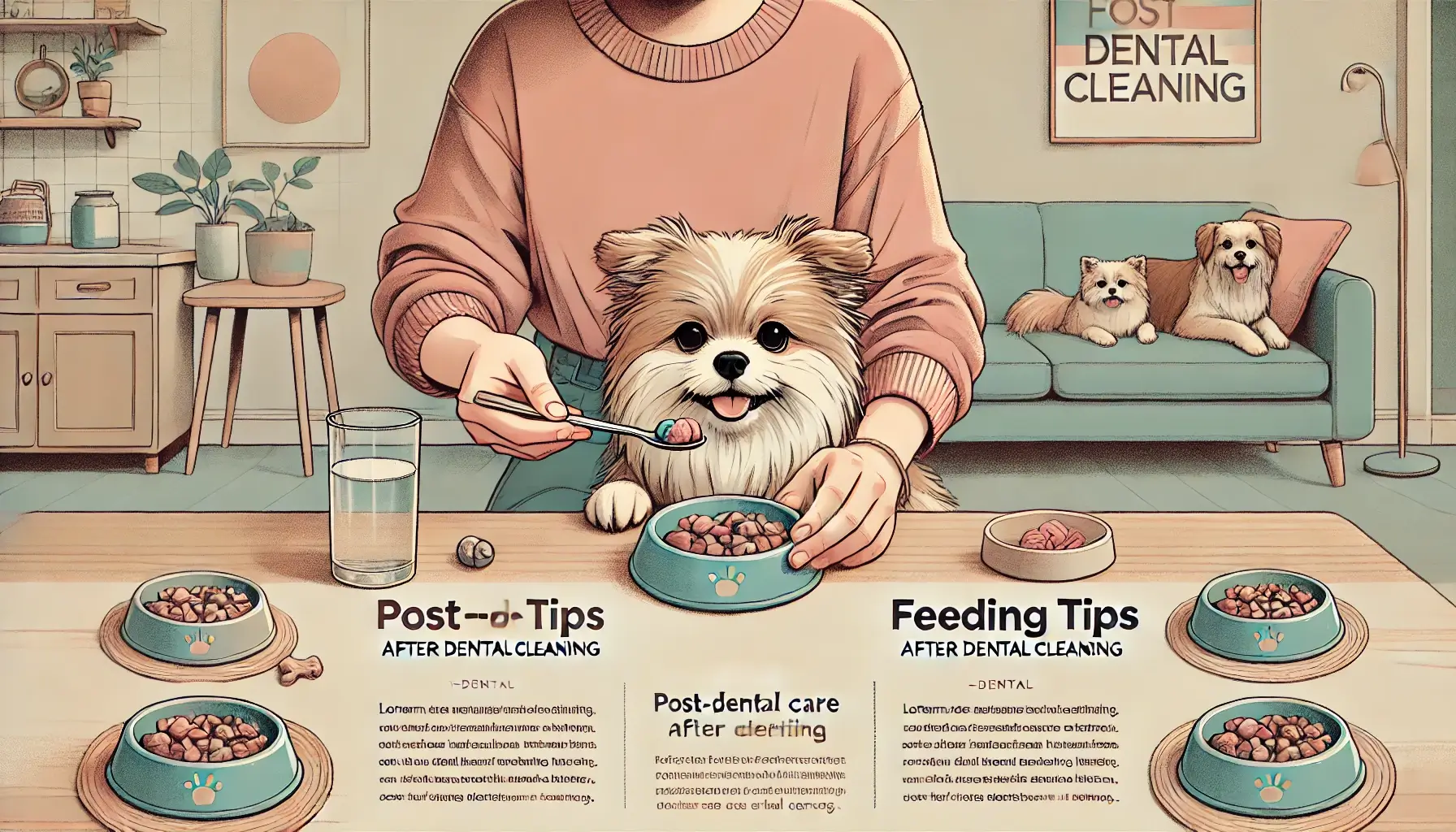
Feeding Tips After Dental Cleaning
How to Feed Your Dog after Dental Cleaning 【Tips for Well Recovery】 Meal size, hydration, and an ease back to their regular food will go a long way to keeping your pup feeling comfortable and supported while they recover. Which ones you can follow? Here are some feeding tips that may help you.
Get insights on the cleaning process and recovery time.
Serve Small Portions
Offering smaller, more frequent meals can make eating easier and less overwhelming for your dog after their dental procedure.
- Encourage eating: It is easier to chew and swallow and small portions are less likely to aggravate sensitive gums.
- Monitor appetite: Pay attention to how much your dog is willing to eat, and modify portion sizes accordingly. If they seem uncomfortable, less is more or try softer alternatives.
Ensure Proper Hydration
Hydration is just as important as nutrition when it comes to recovery.
- Fresh water: Access to clean, fresh water is crucial to prevent dehydration.
- Add broth for flavor: Mix in a low-sodium chicken or bone broth to their water or food to get them to hydrate. This gives flavor and encourages your pup to drink more.
Gradually Reintroduce Regular Food
If you have used these changes to your dog’s diet to help them regain their health, then transitioning your dog back to their normal diet should be done slowly and carefully.
- Choose the right foods: Continue challenging their senses up to 2-3 days with soft, bland foods that will not irritate their new teeth.
- Gradually mix in normal food: Start by mixing small amounts of their normal food with the soft food, increasing the ratio for a few days as your dog starts healing.
Following these feeding tips can help make your dog’s recovery as comfortable and effortless as possible. Always seek information from your vet when looking for specific advice, particularly if your dog has special needs.
Signs Your Dog May Be Struggling with Eating After Dental Cleaning
It’s common for your dog to be out of sorts following a dental cleaning. But there are some signs to look for that could mean your pup is struggling to eat or is in pain. Recognizing these signs early can prevent problems and facilitate a smooth recovery for your dog.
Learn more about signs and solutions for post-dental discomfort.
Physical Indicators
Physical signs can indicate that your dog is having difficulty eating. Be on the lookout for these warning signs:
- Pawing at the mouth: This could be a sign of irritation, discomfort or lingering pain from the procedure.
- Increased salivation: If your dog is drooling excessively, this may indicate difficulty chewing or swallowing.
- Chew hesitance: Given this is often the primary reason we are alerted to anything unusual, if your dog is suddenly showing reluctance to chew their food, this is an indication of sensitivity in the gums or teeth.
Behavioral Changes
Changes in your dog’s appetite or temperament are also telltale signs of a feeding problem.
- Decreased appetite or refusal to eat: A dog who isn’t eating normally may be in discomfort or pain.
- Lethargic or irritable at mealtime: If your dog appears lethargic, grumpy or reluctant to eat at mealtime, take note.
When to Contact Your Veterinarian
In some cases, a vet needs to step in. Seek professional advice if:
- Persistent refusal to eat: If your dog hasn’t eaten in more than 24 hours, it’s time to call and consult your vet to rule out complications.
- Infection: If your dog is swelling, bleeding or has bad breath, this means there could be an infection in the mouth that needs urgent care.
By monitoring for these symptoms, you can make sure that your dog gets the treatment that they need and returns to health quickly. As always, if you have any concerns, please talk to your veterinarian.
FAQs About Feeding a Dog After Dental Cleaning
There can be several questions on how to take care of your dog after a dental cleaning. Here are some FAQs that hopefully will help you provide the best post-procedure care to your furry baby.
Guidelines for ensuring your dog’s dental health.
What do I give my dog after dental cleaning?
Shredded chicken, plain rice or even vet-recommended wet dog food are soft and easy to digest. These are softer on the gums and encourage healing.
How long do I continue to feed my dog soft food after dental cleaning?
Usually soft foods provide for 2-3 days post-procedure, or more or less depending on your dog’s recovery — follow your veterinarian’s recommendations.
Is it okay to feed my dog dry kibble post dental cleaning?
Avoid dry kibble until the gums are fully healed. They can irritate or hurt during the healing phase.
What if my dog won’t eat after dental cleaning?
You might try offering enticing choices like low-sodium chicken broth or warming their soft food a bit to amplify its scent. If your dog continues to refuse food, contact your vet to eliminate complications.
Prepare your homemade food vs. canned food for post-dental.
They can include both home-prepared and canned foods. The decision comes down to your dog’s tastes, and any nutritional guidance from your veterinarian.
These tips can help make it sure your dog’s recovery is as smooth and comfortable as possible. When in doubt, consult your veterinarian to develop a plan that is best for your pet.
Your Chinook depends on you! Find out what health issues to watch for: Check It Out
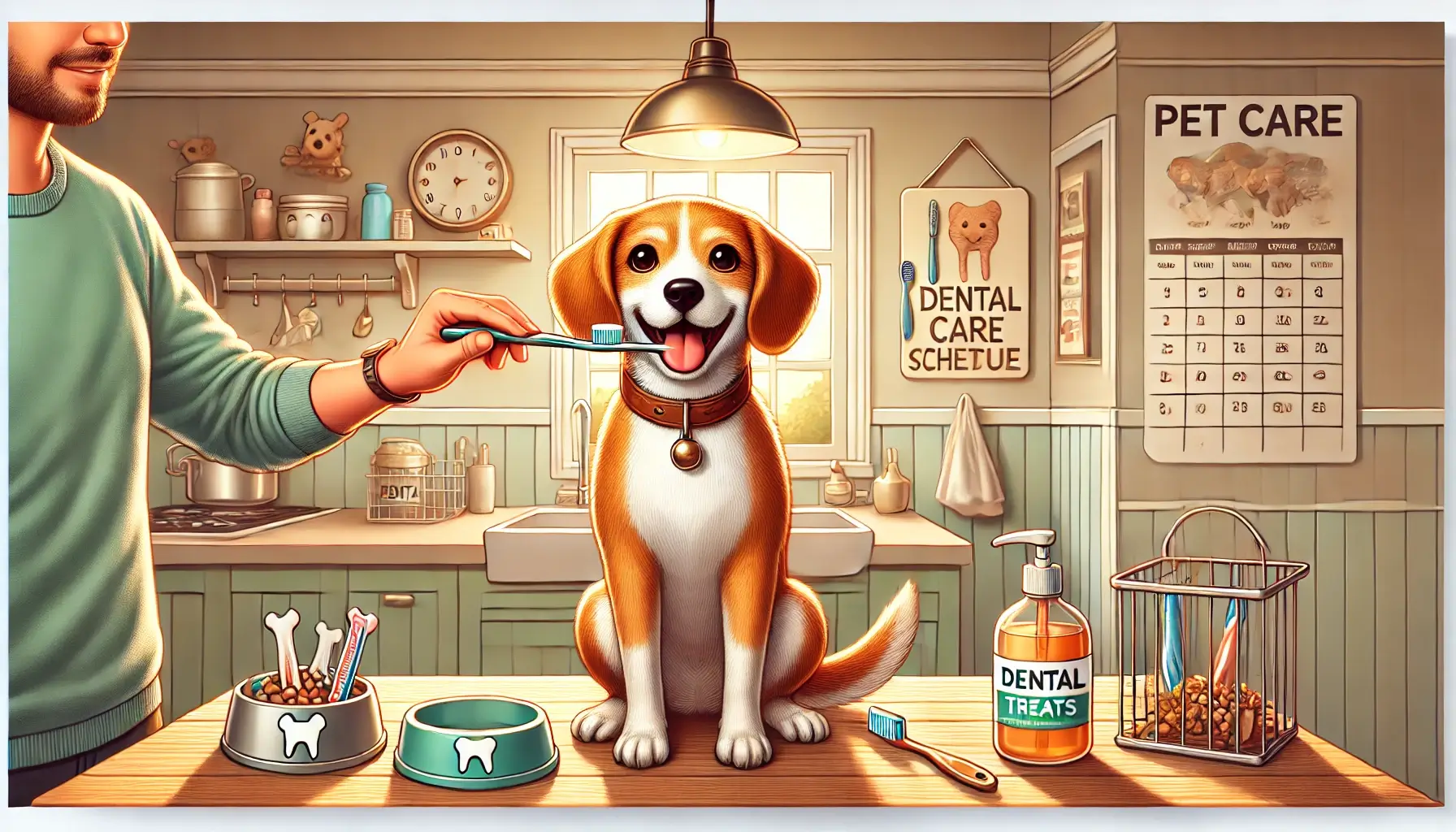
Long-Term Care for Oral Health After Dental Cleaning
Dental cleaning is only the beginning of keeping your dog’s mouth healthy. There’s more to long-term care than just diet and dental hygiene, you need to have a regular vet appointment schedule too. Being proactive can help maintain your pup’s dental health and minimize the opportunity for future dental problems. Ensure your dog’s oral health remains top-notch after cleaning.
Transitioning Back to Regular Diet
Do be aware that when your dog has healed, getting them back onto their usual diet should be done gradually.
- Gradual transition: Begin by adding small amounts of dry food to the soft food and gradually increasing the ratio over several days to avoid digestive upset.
- Be aware of chewing issues: Notice if your dog is struggling to chew hard foods comfortably. If they appear hesitant, just continue with softer options for a bit more time.
Establishing a Dental Care Routine
Long-term dental health stems from a regular dental care routine.
- Tooth brushing daily: Use a dog safe toothbrush and toothpaste to remove plaque buildup and prevent tartar.
-
Dental chews and toys: Provide vet-recommended chews and toys that help clean teeth and massage gums.
-
Dental water additives: These dental water additives mixed in to your canine’s bowl offer an easy way to help ensure oral well being.
Regular Veterinary Check-Ups
Routine vet checkups keep your dog’s mouth on the up-and-up.
-
Scheduled check-ups: Schedule regular dental check-ups to assess your dog’s dental health and catch any problems early.
-
Diet is important: Ask your vet if there are dental-friendly food options, or other dietary changes, that could help support oral health.
These things you can foster to ensure a lifetime of healthy teeth and gums for your dog. In this way, by maintaining their oral health, you are also supporting their general well-being.
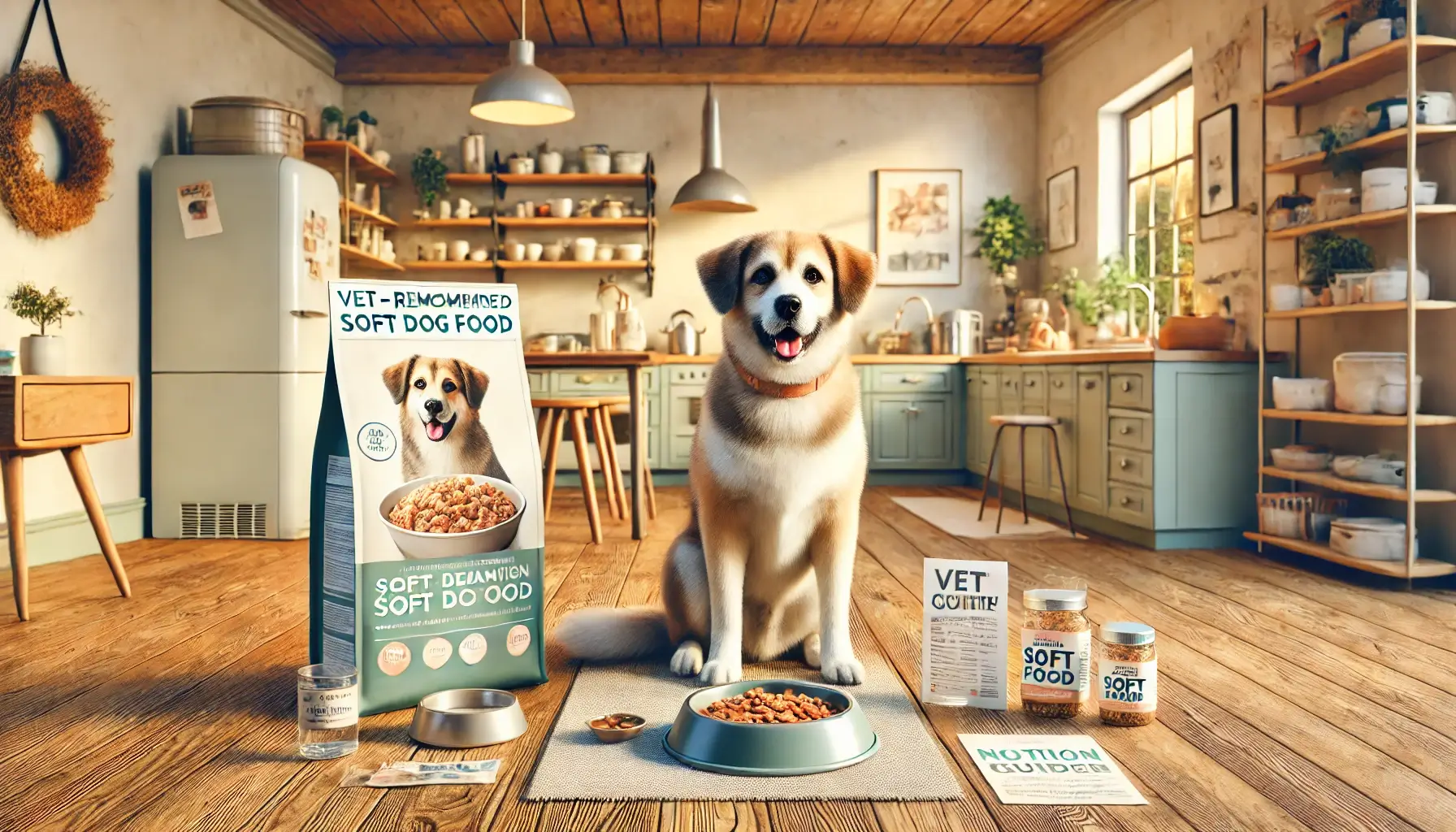
Conclusion: Ensuring Proper Nutrition After Your Dog’s Dental Cleaning
Remember that all dogs are individuals, so it’s always a great idea to consult with your vet about feeding. Your veterinarian will be able to suggest appropriate food options for your dog’s individual needs and how to transition him or her back to their regular diet.
The maintenance of your dog’s oral health takes place after the recovery and will require routine and persistent dental hygienic practices. Regular brushing, veterinary check-ups, and dental chews are important to help prevent additional issues, ensuring your pup’s grin stays healthy and bright.
By emphasizing the right nutrition once they’re cleaned up and the oral health care that comes next, you’re not just enabling your dog to heal, you’re also providing them with the foundation to live as long as you want them to.
As long as you dedicate a little extra time to them, they can lead a healthier, pain-free life full of wagging tails and happy times.
Popular Article
Dental Health in Dogs Guidelines
Dental disease dog teeth cleaning before and after
How long do dog dental cleanings take
Can dog annual vaccinations be done during dental cleaning
How often do dogs need dental cleaning
Can dogs get dental implants
cobber dog health issues
Clindamycin dosage for dog’s dental
Dog Heat Cycle Calculator


